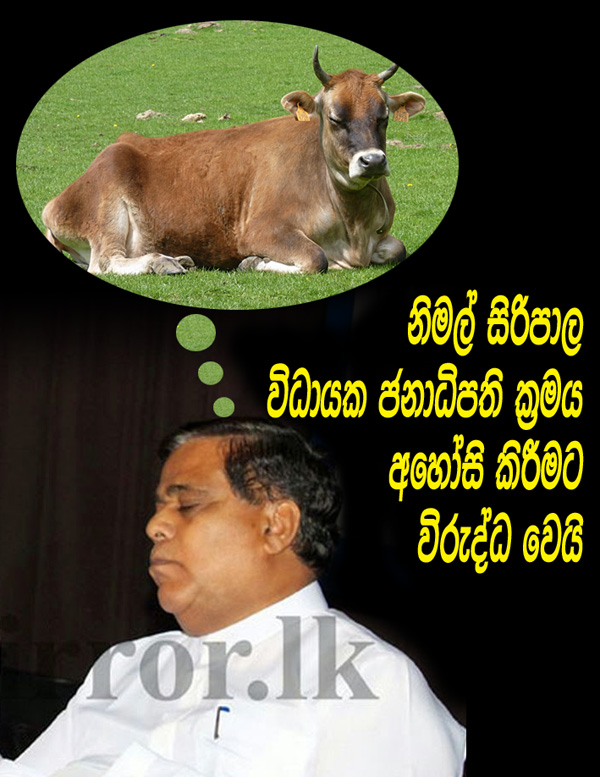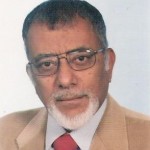Will formula a mechanism to repay depositors
 February 28, 2015, 7:39 pm
February 28, 2015, 7:39 pm
by Suresh Perera
The Central Bank will be moving the Supreme Court (SC) to take over the management of the failed Golden Key and formulate a mechanism to reimburse depositors, a high-ranking official of the regulatory body said yesterday.
"We will be appealing to the SC through the Attorney General’s Department next week to acquire the operations of this company, which collapsed in 2008", he said.
The Fundamental Rights (FR) plea filed by a group of GK depositors will resume before the SC on March 11, 2015.
He said that the Central Bank will examine the possibility of liquidating assets and repaying investors if the SC gives the green light to directly intervene and take over the management of this Ceylinco subsidiary.
Asked whether the Central Bank will formulate a fresh repayment solution to grant relief to struggling depositors, the senior official replied, "Yes, we will work out a traditional plan on the lines of the formula adopted for Mercantile Credit".
He said that the newly-constituted GK Board of Directors has failed to restructure the company and move in a positive direction. "All the directors, except Mrs. Dushanthi Hapugoda, have already resigned".
"That’s not correct. Only three directors – Priyantha Fernando, Aruna Lekamge and Jehan Amaratunge – have stepped down so far", Hapugoda countered. "The others are intact".
She said that she tendered her resignation at the last board meeting on Wednesday, but the Chairman had declined to accept it saying that Central Bank Governor Arjuna Mahendran had wanted the company to function smoothly for the next three months.
"I am prepared to bow down at any time", she noted. "It is not my intention to hang on to this if there are changes in the pipeline".
Asked whether the appointment of a full-time Task Force to GK by the Central Bank was decided on at Friday’s meeting depositors’ associations had with the Governor, the top official said, "There is no such move. We want to acquire GK with SC approval and look at how redress could be granted to investors".
It has transpired that the GK CEO, Dinesh Perera has drawn a salary of Rs. 5.3 million over the past eleven months. He had been recruited on a monthly remuneration of Rs. 525,000, which was subsequently reduced to Rs. 375,000 despite the Monetary Board of the Central Bank indicating that individual salaries should not exceed Rs. 200,000, an official said.
Amidst last week’s assurance by Finance Minister, Ravi Karunanayake that funds of GK depositors will be reimbursed, there were reservations in some quarters whether Lalith Kotelawala will fall in line to return billions of rupees to investors.
"That is the critical question because Kotelawala was personally not a party to this undertaking by the Finance Minister", depositors pointed out. "If he can give television interviews, he could have, at least, issued a statement supporting the Minister’s pledge".
Asked by The Sunday Island whether Kotelawala has given a firm assurance that all GK depositors will be repaid their dues, Karunanayake replied, "No, there is no such undertaking, but the Finance Ministry has intervened to look at what is going on".
This is akin to Hamlet without the Prince of Denmark, an investor protested. "As it was Kotelawala who mustered deposits as the then GK Chairman, he should have corroborated the Minister’s statement".
"Since this Ceylinco subsidiary folded up six years ago, has Kotelawala ever honored his pledges to depositors?", queried Hapugoda, president of the GKCC All Depositors’ Association.
More than 20 depositors have died so far and many more were thrown on to the streets after they lost their hard-earned savings, but what has Kotelawala done to offer relief?, she asked. "All his promises were mere empty words".
"We find it difficult to trust a man who gave a categorical assurance to depositors at the BMICH meeting, shortly after GK crashed in December 2008, that every cent would be paid back", Hapugoda elaborated. "Then in June 2011, he submitted a repayment plan to the Supreme Court to repay 80% of investments".
Three years have gone by, but this undertaking is yet to see the light of day, she said. "He could not be contacted for many months since assuring court that he will reimburse deposits".
Kotelawala didn’t give any assets voluntarily and as a result, it was a battle to liquidate some of his properties and repay Rs. 300,000 per depositor over a six-year period. "We could have certainly done more to grant redress, but he has continuously blocked us from acquiring his assets".
Asked whether a repayment plan has been worked out to settle depositors within the limited 100-day timeframe, Minister Karunanayake said that discussions and negotiations are ongoing.
"Without speculating on this, it is better that we meet up to discuss the issue", he suggested. "We have intervened to grant relief".
Karunanayake told the meeting that the management of the Ceylinco Group of Companies has given a written undertaking to pay back the money to GK depositors prior to the completion of the 100-day program of the government.
It was reported that the Ceylinco Group, at the discussion with the Minister, expressed their willingness to settle the matter without litigation. They had assured him that they would dispose of assets to repay depositors.
They were also scheduled to meet with the Central Bank Governor for advice on a repayment mechanism.
The Minister told the media that the issue had dragged on because of the adverse economic situation in the country during the Rajapaksa regime and lukewarm attitude of the then Central Bank Governor.
Hapugoda said that Kotalawala was not present at the meeting the Minister summoned with depositors’ associations, where a document was passed around seeking consent for the new repayment initiative.
"I declined to sign it as there is an ongoing case before the Supreme Court and any settlement outside the judicial process could amount to contempt of court", she asserted.
"How can we sign a document without any knowledge of the repayment formula to be adopted?", she asked. "It is nothing but fair that we should be told how the whole process will work and how justice will be meted out".
"It’s good if the Minister can resolve this protracted issue, but it should be done within the ambit of the law", she suggested. "It should be borne in mind that Kotelawala doesn’t do what he says and is swift to capitalize on opportunities".
He didn’t implement his own repayment plan forwarded to the Supreme Court in 2011, she noted. "He has been playing around with the hopes of 9,000 helpless investors", she asserted.
Hapugoda stressed that despite pressure, the FR case will not be withdrawn. "What would be our plight if Kotelawala refused to reimburse depositors after we withdraw the case?"
"The bitter experiences with him were many and we don’t want a repetition of the ‘frying pan into the fire’ episode", she said. "We cannot allow him to continue leading us up the garden path".
She said that the meeting with the Minister was a sequel to written representations made to President Maithripala Sirisena.
 It is obvious that the Northern Provincial Council has jumped from ‘war crimes’ to ‘genocide’ claims within the pace of one year, for some reason, strangely in a context where an overwhelming majority of Tamil people on the direction of the TNA had voted to bring a new government that promised for good governance, rule of law and reconciliation. The resolution accuses even the new government in the process of genocide.
It is obvious that the Northern Provincial Council has jumped from ‘war crimes’ to ‘genocide’ claims within the pace of one year, for some reason, strangely in a context where an overwhelming majority of Tamil people on the direction of the TNA had voted to bring a new government that promised for good governance, rule of law and reconciliation. The resolution accuses even the new government in the process of genocide. 






















.jpg)